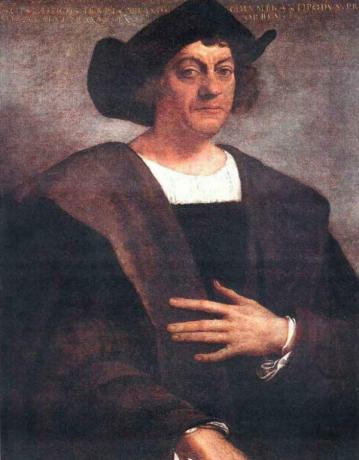When we study the Protestant Reformations, two names stand out: Martin Luther (1483-1546) and John Calvin (1509-1564). We know that Luther, despite having some forerunners, he was the first religious reformer to have a truly decisive impact. within the tradition of the Catholic Church and, above all, in the political institution of the Holy Empire Roman-Germanic.
The circulation of Lutheran ideas (promoted mainly by the invention of the press machine) soon reached the whole of Europe and began to influence from clerics and peasants to kings and nobles. One of the places with the greatest repercussion of Lutheranism was Switzerland, where, from the 1530s onwards, the thought of John Calvin. In order to understand the context in which Calvinism developed, it is necessary to understand a little of the situation in Switzerland at that time.
At the end of the 15th century, specifically in the year 1499, Switzerland managed to become independent from the Holy Roman Empire. However, its political organization was not unitary, so there was concentration of power in several cities that they were true commercial poles and centers of an ascendant bourgeoisie that was progressively strengthening. However, this rise was hampered by the lack of ideological legitimacy. In this context, a character predated Calvin and initiated the religious reform in Swiss cities: Huldrych Zwingli.
Zwingli supported Martin Luther's ideas and propagated them openly. He became a figure of some popularity because of his humanitarian actions undertaken at the time when Switzerland was hit by the bubonic plague. Zwingli, among other things, rejected the sacrament of confession and defended the premise of predestination. Thoughts of him stirred up various regions of Switzerland and even provoked the civil war of 1531, in which he died. That same year, a first agreement was proposed, entitled “Peace of Kappel”, with a view to establishing religious tolerance in Switzerland.
In the following years, the revolts continued in other regions, mainly in Geneva, which was still torn between Catholics and rising Protestantism. It was in Geneva that Calvin he emerged as a figure of great importance within Protestantism. Like Zwingli, Calvin was enthusiastic about Luther's ideas and took some of his premises to ultimate theological consequences, such as the question of predestination.
THE acting of John Calvin in Geneva it began in the year 1536 with the publication of the book “Institutions of the Christian religion”. In addition to the predestination premise, Calvino also defended salvation through faith, the moral valorization of work and the practice of saving as a way to enrichment. These defenses met the interests of the Genevan bourgeoisie, which welcomed Calvin and gave him great space for political action.
Calvinism soon spread to other regions of Europe, especially to England, Scotland and France, where adherents of Calvinism came to be called Puritans, Presbyterians, and Huguenots, respectively.
By Me. Cláudio Fernandes
Take the opportunity to check out our video lesson related to the subject:

